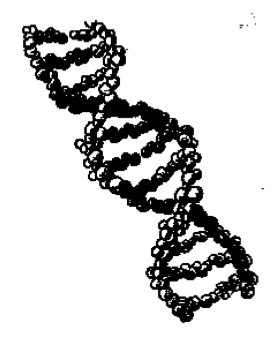A few years ago I watched Invasion of the Body Snatchers with my son, Crawford. Crawford was only six years old at the time, maybe a little young for a horror movie, but he is not an easily frightened kid. He hardly blinked at the velociraptors in Jurassic Park, and when we watched Lon Chaney Jr. transform into the Wolfman he laughed out loud. I expected him to react the same way to Body Snatchers. But I was wrong. Crawford had nightmares for weeks. He wasn’t afraid of the harrowing car chases or the pods appearing mysteriously in cellars. What terrified him was the creepy, glass-eyed serenity of the people whose bodies had been snatched. They looked like humans, they acted like humans, they even remembered what it was like to be human. Yet they were pod people, and—most terrifying of all—they had no regrets about their transformation. When I asked Crawford what was giving him nightmares, he would do a dead-on imitation of a pod person, eyes empty, a vacuous grin on his face, repeating in a flat monotone, “It’s better this way.”
Many people these days are having the same reaction to the prospect of human genetic enhancement. They fear that even as we attempt to engineer ourselves to be smarter, better-looking, and longer-lived, we will lose something essential to who we are. Leon Kass, chairman of the President’s Council on Bioethics, believes that genetic manipulation will rob us of our dignity, and the Council itself is examining the ethics of such technologies. Francis Fukuyama, another Council member and the author of Our Posthuman Future, argues that genetic enhancement will destroy human nature. It is not just social conservatives who are worried. In Enough: Staying Human in an Engineered Age, the environmentalist Bill McKibben argues that genetic enhancement will signal the end of human meaning altogether.
These worries are not hard to understand. Yet many other people don’t share them at all, or even the deeper intuitions about loss and artificiality that motivate them. Many people seem positively thrilled at the prospect of surrendering their human nature to something else—bionic body parts, virtual sex, transformative surgery, extreme body modification, cryonic immortality, or eternal consciousness on a computer hard drive. Genetic enhancement? Bring it on, say the transhumanists, cyberfeminists, cryonicists, and assorted technophiles, waving their copies of William Gibson’s Neuromancer and Donna Haraway’s The Cyborg Manifesto. The technophiles have found allies in the pharmaceutical and biotechnology industries (who look at genetics and see money), some university scientists (who look at genetics and see a research program), market ideologues, and libertarians (who...
You have reached your article limit
Sign up for a digital subscription and continue reading all new issues, plus our entire archives, for just $1.50/month.
Already a subscriber? Sign in





